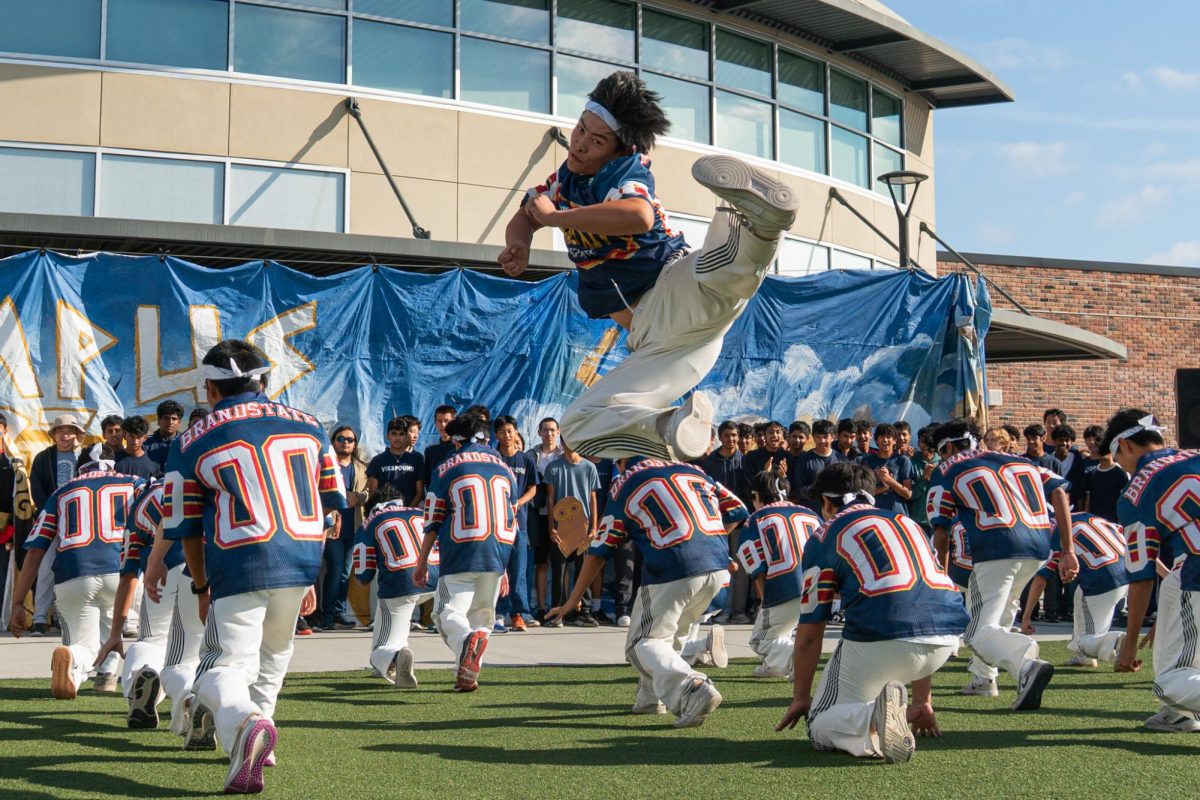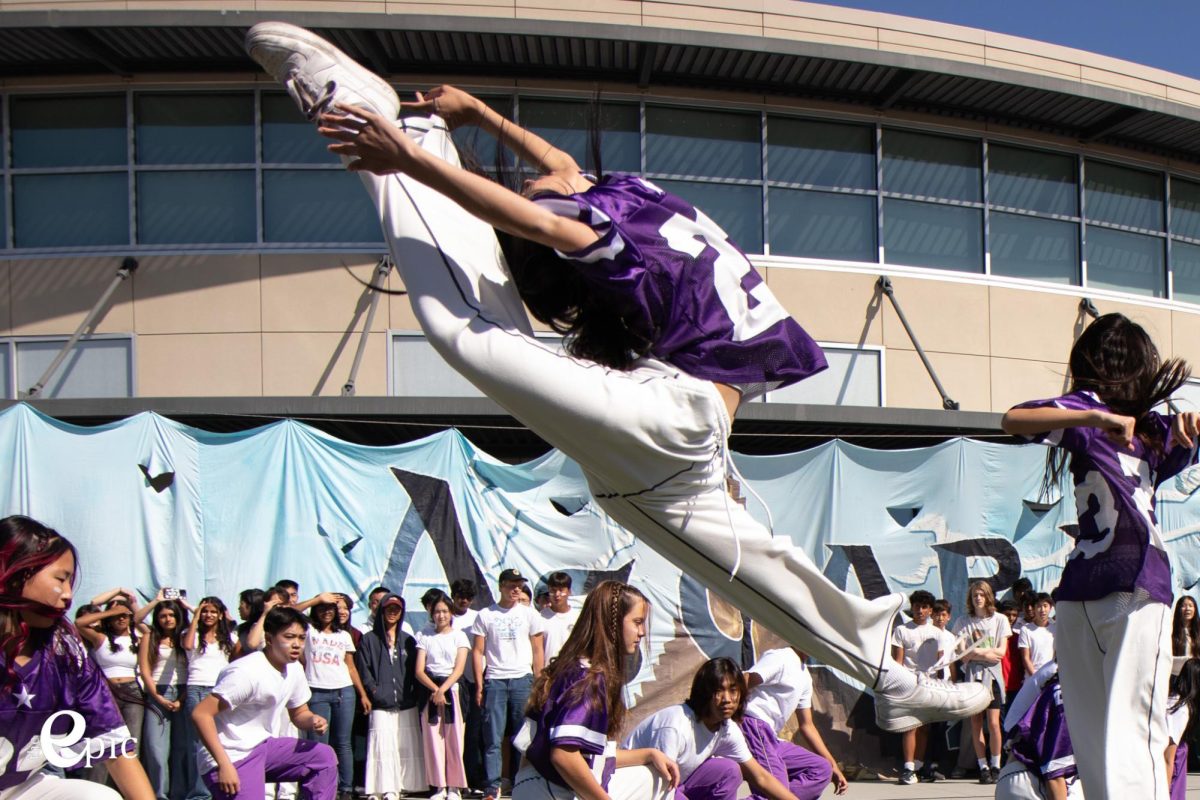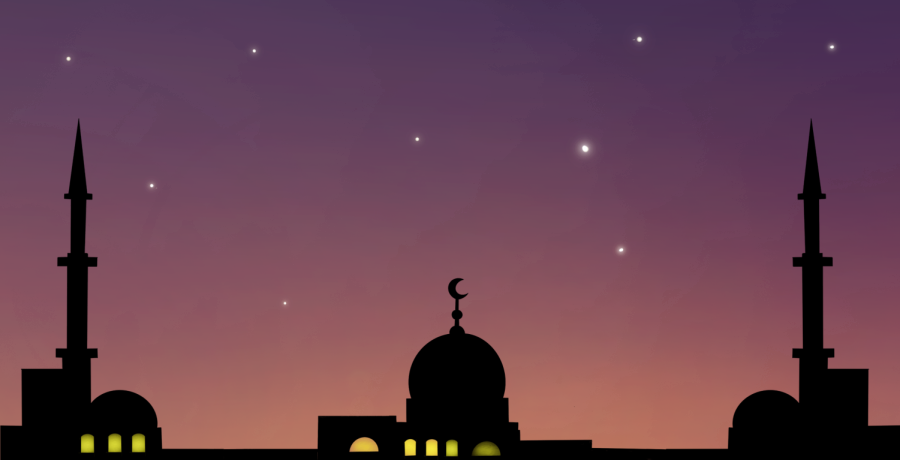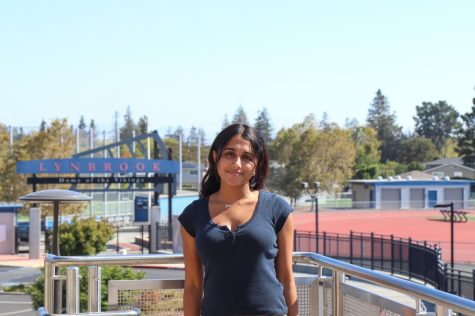Ramadan helps Muslims explore religious identity and build character
Graphic illustration by Samiya Anwar and Ria Phelan
During Ramadan, Muslims abstain from eating and drinking from sunrise to sunset.
May 3, 2022
Eech year, more than 1.7 billion Muslims participate in the holy month of Ramadan. During the ninth month of the lunar year, Muslims practice self-discipline and sacrifice, abstaining from eating and drinking from sunrise to sunset and nourishing their relationship with Allah.
Islam is based on the revelations the Prophet Muhammad had from God, referred to in Islam as Allah, in the 7th century.
“The Quran was revealed in this month and is divided into 30 portions,” West Valley Muslim Association Imam Sheikh Alauddin ElBakri said. “Each portion is recited every night during Ramadan by the Imam.”
Some of the Five Pillars are mentioned in the Quran and are the core beliefs of Islam. The Five Pillars are Shahada, Salat, Zakat, Hajj and Sawm. Sawm means “to fast” — a vital component of Ramadan. Through the interim deprivation of food and water, Muslims grow closer to Allah and learn valuable lessons of discipline, gratitude and self-control.
“Fasting is challenging during the first few weeks,” sophomore Ziyad Attia said. “It isn’t challenging for the entire time because you build discipline as the month goes on.”
Fasting during Ramadan usually lasts for 10 to 19 hours and often coincides with other necessary activities like school or work, making it a time for endurance.
“I wake up everyday at around 4:30 a.m. to eat as much protein and carbs as possible,” Attia said. “After eating, I usually go back to sleep until school starts, where I fast the whole day. Then from 7:30 to 7:40 p.m., we’re allowed to break our fast and start eating again.”
Ramadan fasting also results in having to pause physical activities.
“I paused my basketball practices and gym sessions,” Attita said. “I usually go to the gym at night, but during Ramadan, I am often completely drained of energy, so I don’t participate in many physical activities.”
Fasting as a way to feel a unity with God, which Muslims refer to as “Ummah,” is also practiced by some beyond Ramadan. Muslims who follow the actions of Sunnah, the practices of Prophet Muhammad, fast every Monday and Thursday all year round.
“By focusing on religion and school, the month goes by really fast,” junior and Muslim Student Association Vice President Bilal Shibab said.
While many think that Ramadan is only about fasting, the holiday is also one where Muslims practice removing bad habits and negativity from their lives.
“There is so much more to the holiday than than abstaining from eating and drinking,” junior and Muslim Student Association President Abdulrahman Naveed said. “It’s a way to build your relationship with God by participating in acts of worship, giving to charity and bonding with your family and friends.”
Ramadan helps Muslims to change their habits and become more grateful for what they have.
“A few hours of hunger and thirst can humble us,” ElBakri said. “Ramadan is also about caring for others. We often donate to nearby charities and others who are in need.”
Ramadan brings a sense of purpose to Muslims and strengthens their faith in Allah. It also builds character in Muslims and strengthens their relationship with Allah and their own family.
“Ramadan brings my family closer,” Attita said. “It allows us to build closer connections with each other.”



































































